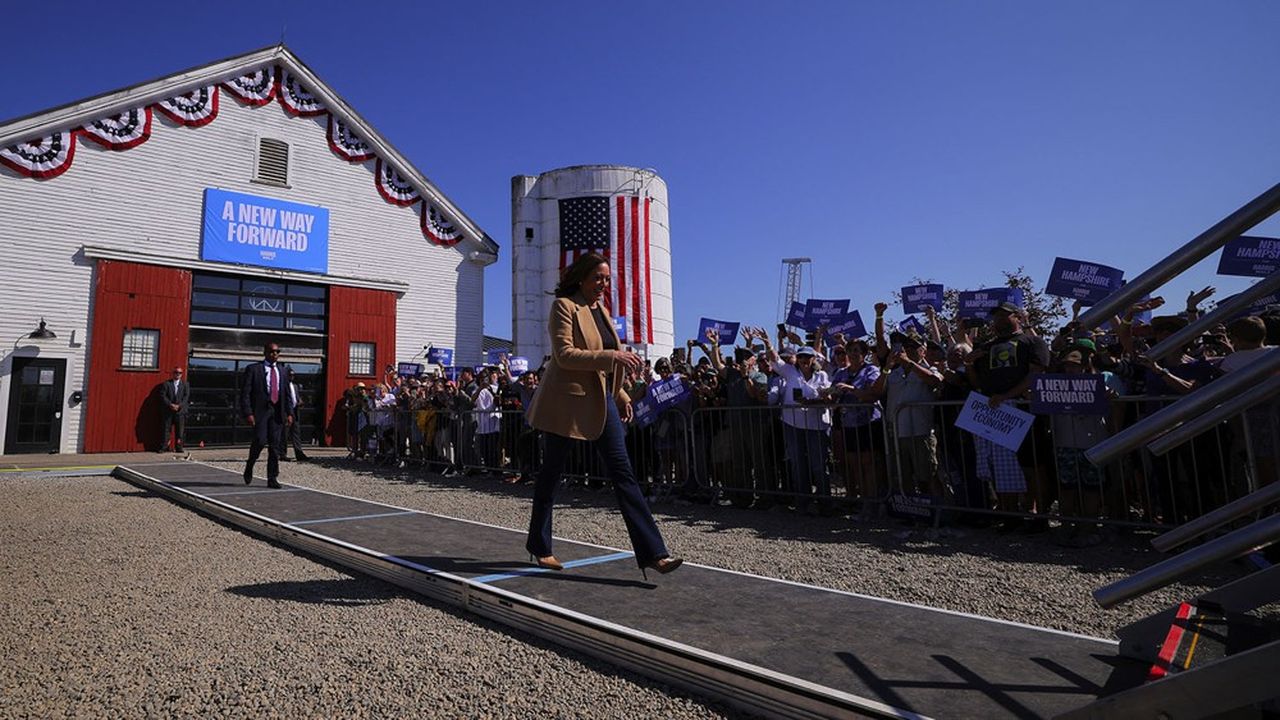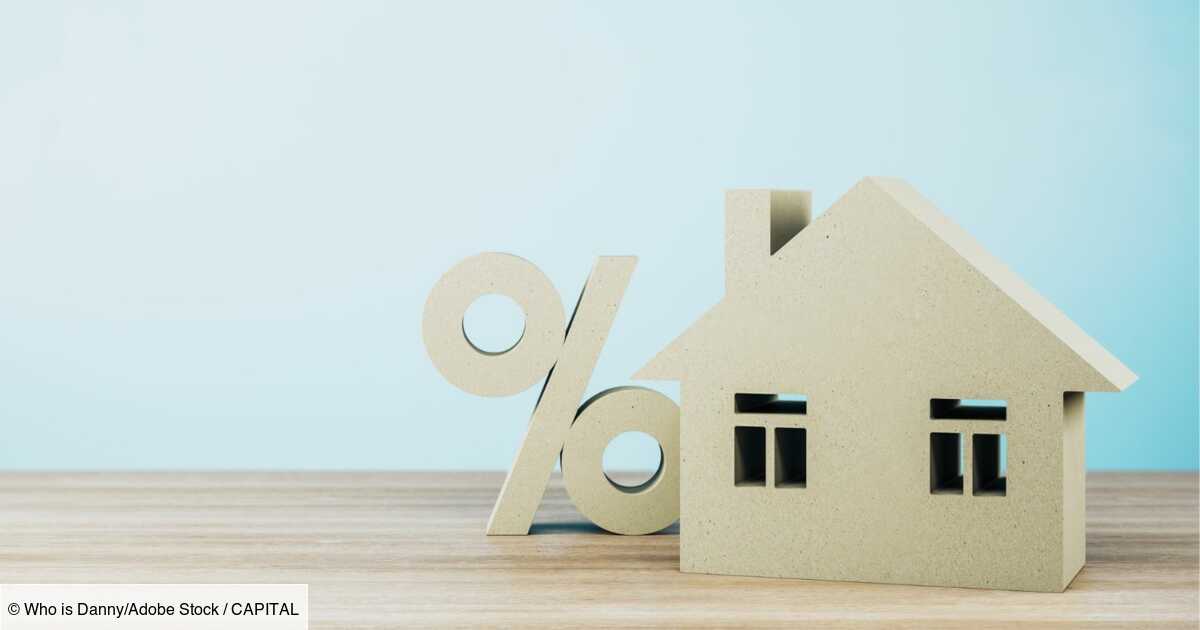
Kamala Harris has begun to show her hand in terms of fiscal policy. The Democratic candidate for the US presidential election in November appears more moderate than her predecessor Joe Biden, but she remains the polar opposite of Donald Trump.
On Tuesday, in Portsmouth, New Hampshire, she reaffirmed her commitment to building an “opportunity economy,” and outlined how that would benefit small business owners. The goal is to create 25 million businesses during her term if elected — even more than the 19 million under Joe Biden.
The Democratic candidate has promised to increase the tax deduction for business-related expenses tenfold, to $50,000, and to reduce administrative hassles for entrepreneurs. Above all, she announced a much lower increase in capital gains taxes than the one Joe Biden promised before leaving the presidential race.
“My plan will make our tax code fairer while prioritizing investment and innovation,” Harris said. Like Biden, she supports a minimum tax on billionaires, because “billionaires and big corporations should pay their fair share of taxes.” Like Biden, she wants to increase the tax on long-term capital gains.
A maximum rate of 33%
It would raise the latter from 20% to 28% for people earning a million dollars or more. Including a tax on investment income that Joe Biden had announced he wanted to increase from 3.8% to 5%, and which still seems to be on the agenda, the maximum tax rate on capital income for millionaires could therefore reach 33%, notes the “Wall Street Journal”.
By comparison, the former Democratic candidate was prepared to go up to 44.6%, to please the left wing of the party, which is demanding an alignment of the taxation of capital with the taxation of work. That is, an increase in the taxation of capital gains to 39.6%, plus 5% tax on investment income.
Kamala Harris is seeking to distance herself from the unpopular president and, above all, to deny the Trump camp that accuses her of being a leftist, with “communist” ideas. Hence this support for small entrepreneurs. “We are going to tax capital gains at a rate that rewards investment and innovators, founders, small businesses in America,” explained the Californian, “because we know that when the government encourages investment, it leads to broad economic growth and it creates jobs, which strengthens our economy.”
Even though it is more moderate than Joe Biden’s, the Democratic candidate’s program remains the polar opposite of Donald Trump’s in terms of taxation. The latter has already announced that he will renew and even deepen the tax cuts he introduced in 2017, which will expire next year. While the Democrats want to increase the corporate tax rate from 21% to 28%, he would like to lower it to 15%.







